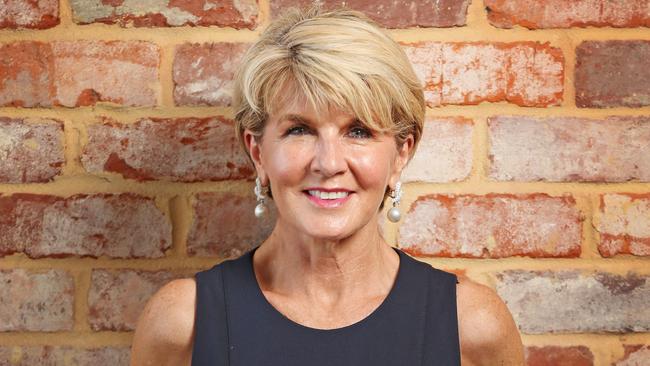
There is an element of truth to Julie Bishop’s claim she could have defeated Bill Shorten at the next election had the Liberal Party elected her leader over Scott Morrison. Indeed, some in Labor were concerned she might seize the prime ministership.
When Tony Abbott’s government was circling the drain, Labor conducted focus groups and polling in several states, and at the national level, testing which Liberal leadership hopeful posed the biggest threat.
While Malcolm Turnbull was angling to reclaim the Liberal leadership, Bishop was always the greater danger for Labor. Voters in marginal seats were not convinced about the prospect of Turnbull as PM — many saw him as arrogant and out of touch, and too eager to unseat Abbott.
Labor’s research began near the time of the failed leadership spill against Abbott in early 2015. The research was good news for Abbott in one sense: most rusted-on Liberal voters supported him — and that never changed. The problem was that swinging voters had given up on him.
Voters were generally underwhelmed by the idea of Morrison or Peter Dutton as prime minister in 2016-17, according to Labor’s research. But they were seen as respected politicians who could win back disaffected conservatives who had fled the party.
Although there were doubts about Bishop, voters viewed her as highly likeable and she had broad political appeal across parties and age groups. She was admired for her stewardship of the foreign affairs portfolio. Some voters looked up to her. She was, according to some in Labor, the Coalition’s best bet.
Would Bishop had defeated a Shorten-led Labor Party? It is hard to see how Bishop could have led the Coalition to victory given the chaos and dysfunction over the past five years and with a hostile conservative wing.
But Shorten was alive to the threat Bishop posed to his ambition to be prime minister.
“There is no doubt in my mind that Julie Bishop would have been a formidable opponent,” he said mischievously but also truthfully yesterday.





To join the conversation, please log in. Don't have an account? Register
Join the conversation, you are commenting as Logout